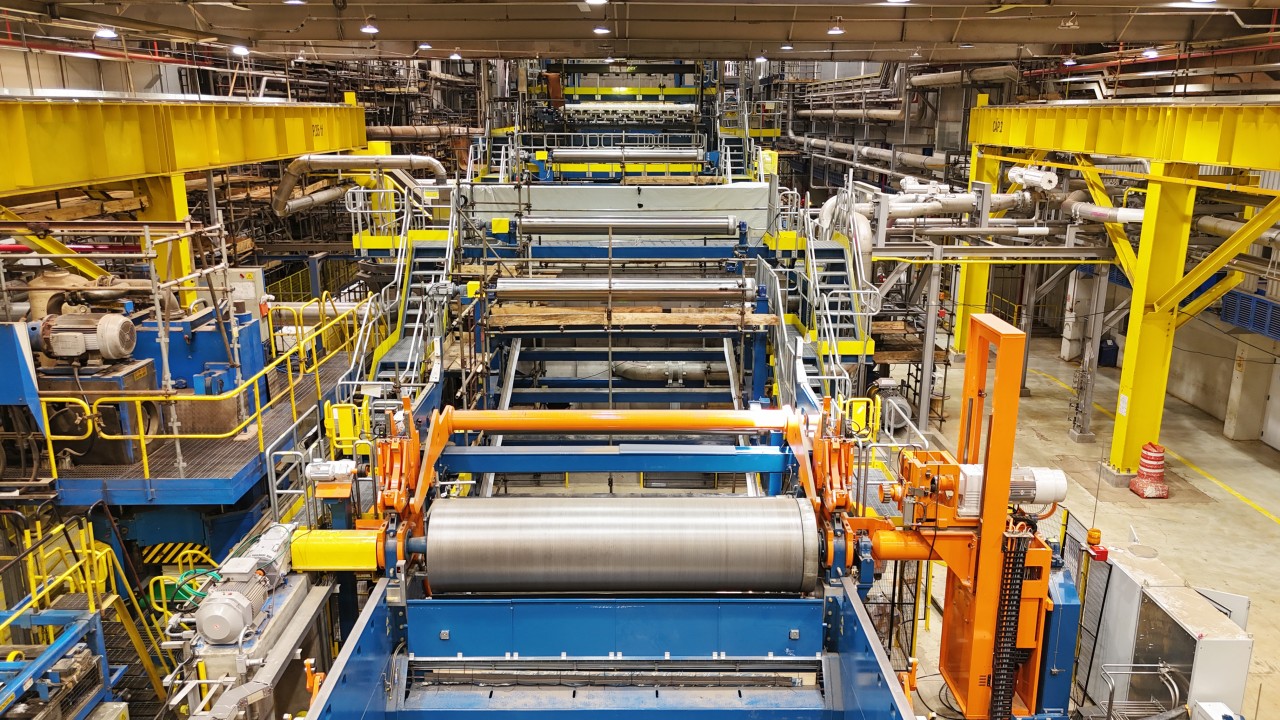First comprehensive guide to align with China’s dual carbon goals while addressing sector-specific challenges
Shanghai, China – July 24, 2025 – Suzano, the world’s leading market pulp supplier, today launched the China Pulp & Paper Industry Decarbonization White Paper in a landmark collaboration with Deloitte China and Professor Wang Yutao’s team at Fudan University. As the sector’s first comprehensive decarbonization guide, it outlines clear pathways to carbon neutrality in line with China’s dual carbon reduction target while strengthening industrial competitiveness.
Developed by a team of sustainability experts, the white paper combines Suzano and other industry players’ global experience, Deloitte China’s local insights, and the academic expertise of Professor Wang Yutao’s Team at Fudan University. The research team conducted a comprehensive techno-economic analysis of diverse decarbonization strategies spanning the entire value chain, including sustainable forestry management, green product design, manufacturing decarbonization, sustainable procurement, value chain coordination, and circular economy. Detailed case studies illustrate how these strategies are already being effectively applied in farms and mills of various sizes and specializations.
Jeff Yang, Suzano Asia President of Pulp Business, comments, “Sustainability lies at the core of Suzano’s business strategy. The white paper embodies our commitment to scaling solutions that work for both business and the planet. By sharing our global best practices, we aim to contribute to the acceleration of China’s low-carbon transition while strengthening the industry’s future.”
Michael Zhang, Managing Partner of Green Construction, Sustainability, Deloitte China, comments, “Through this white paper, Deloitte China aims to leverage its professional expertise and deep industry insights to support China’s pulp and paper companies in developing comprehensive decarbonization strategies and roadmaps across the entire value chain. This will help accelerate their low-carbon transition and ultimately achieve net-zero goals.”
Professor Wang Yutao of Fudan University comments, “This white paper not only outlines the challenges and opportunities facing the industry but also delivers actionable solutions through in-depth international case studies and China-specific practices. It serves as a vital reference for the paper sector’s phased progress toward carbon neutrality.”
Alongside the white paper launch, Suzano also shared its comprehensive Climate Transition Action Plan (CTAP), a strategic set of initiatives to combat climate change through emissions reduction and enhanced resilience. The plan outlines Suzano’s climate strategy around three key pillars: the reduction of greenhouse gas emissions across operations and the value chain, increasing carbon removal and storage, and growing the bioeconomy through sustainable, low-carbon products.
The white paper will serve as the core material for a joint education program taking place in August 2025 at Shanghai Jiao Tong University’s China-UK Low Carbon College. The program is designed to equip industry leaders with the knowledge and practical tools needed to apply the report’s recommendations to their own operations.
The white paper debuted at a seminar on Sustainable Soft Commodity Supply Chains, co-hosted by Suzano and the University of International Business and Economics.
Industry stakeholders and sustainability leaders can now access the white paper via the Suzano Asia website.
About Suzano:
Suzano is the world’s largest pulp supplier, a major paper and packaging producer in the Americas, and one of Brazil’s largest employers. Driven by a deep commitment to sustainability and innovation, Suzano produces responsibly-grown raw materials that are exported to more than 100 countries around the world, meeting the global demand for bio-based solutions. These are used to make everyday items that reach more than two billion people, including toilet paper and tissue, packaging, printing and writing paper, personal hygiene products, and textiles. Founded in Brazil over 100 years ago, today Suzano operates across Latin America, North America, Europe and Asia. The company’s shares are listed on the B3 in São Paulo (SUZB3) and the New York Stock Exchange (SUZ). Learn more at: suzano.com.br/en
About Deloitte China:
Deloitte China provides integrated professional services, with its long-term commitment to be a leading contributor to China’s reform, opening-up and economic development. Deloitte China is a globally connected firm with deep roots locally, owned by its partners in China. With over 20,000 professionals across 31 Chinese cities, the firm provide clients with a one-stop shop offering world-leading audit, tax and consulting services.
Deloitte China serves with integrity, uphold quality and strive to innovate. With professional excellence, insight across industries, and intelligent technology solutions, the firm helps clients and partners from many sectors seize opportunities, tackle challenges and attain world-class, high-quality development goals.
The Deloitte brand originated in 1845, and its name in Chinese (德勤) denotes integrity, diligence and excellence. Deloitte’s global professional network of member firms now spans more than 150 countries and territories. Through its mission to make an impact that matters, Deloitte helps reinforce public trust in capital markets, enable clients to transform and thrive, empower talents to be future ready, and lead the way toward a stronger economy, a more equitable society and a sustainable world.
About Professor Wang Yutao’s Teams at Fudan University:
Professor Wang Yutao’s research team has long been dedicated to environmental systems engineering and carbon neutrality studies, with a focus on the complex interactions between industrial systems and ecological environments from a life-cycle perspective. The team has made significant breakthroughs in industrial net-zero emissions and their life-cycle ecological impacts, including publishing the first-ever research article on pulp and paper industry net-zero pathways in Nature (the flagship journal’s inaugural paper on this topic); authoring UNEP’s first global assessment report on the bio-based economy; leading the successful overseas implementation of an integrated digital-clean production demonstration project for the paper industry. These achievements provide critical scientific foundations and practical case references for driving industrial decarbonization and advancing sustainable development goals.






